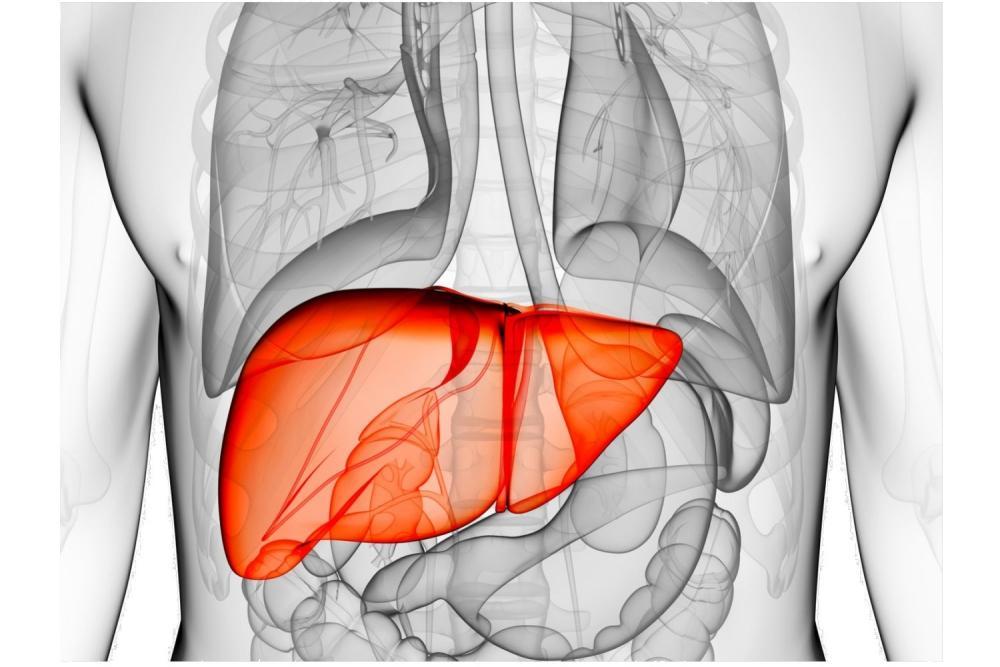Africa-Press – South-Africa. The liver is one of the most vital parts of the human body. It is the second-largest organ in the body and handles many important functions. The most important one is to remove toxic substances from the body. It also clears alcohol and breakdown products of medicines from the body.
The liver balances cholesterol levels in the body, makes bile, which helps in the absorption of fats, stores sugar, regulates the sugar metabolism, and releases it when needed for the body. It builds up protein in the body. The liver regulates several hormones, including insulin-like growth factors, angiotensinogen, thrombopoietin, and hepcidin, which regulate growth hormone, blood pressure, clotting, and iron regulation in the body. Additionally, it is involved in the metabolism of thyroid hormones and glucagon-like peptide-1 (GLP-1).
Due to sedentary lifestyles and junk food, the issue of fatty liver is increasing, where fat is deposited in the liver. It is a risk factor for type 2 diabetes mellitus, heart disease, and kidney disease. Abuse of alcohol damages the liver, where normal liver tissue starts getting converted into fibrous tissue, thus affecting its function. In the early stages, it is reversible, but once cirrhosis starts, it is irreversible. Once the liver starts malfunctioning, toxins are not removed from the body and start building up, leading to damage to body cells and vital parts. Therefore, it is necessary to be cautious and keep the liver healthy.
The first major step is to avoid alcohol. Maybe social drinking in small amounts occasionally, but regular use should be avoided as it tends to scar the liver. The stronger the liquor, the more the quantity and frequency, the greater the risk of liver damage.
Pesticides and chemicals used in food products to keep them pest-free and fresh for a longer duration tend to damage the liver. Hence, any vegetable, fruit, or grain used should be washed and cleaned thoroughly before cooking for consumption. Freshly cooked warm food is always better than processed or ready-to-eat fast food. Processed foods also contain chemicals used for colouring, preservation, or enhancing flavour, some of which are harmful and toxic to the liver. Good handwashing and good food hygiene are good measures to prevent viral hepatitis A, which spreads through contaminated food, water, and or hands.
Certain drugs like lipid-lowering drugs, anti-T.B. drugs, and some antibiotics are harmful to the liver. Therefore, one should take any one of them only when necessary and should be vigilant about symptoms of any liver damage. Certain herbs, mushrooms, are toxic to the liver, and one should be cautious about them.
Infectious diseases like viral hepatitis B and C are spread through sexual intercourse or contaminated tools. Hence, to prevent these diseases, safe sexual practices should be followed. It should be ensured that any device used on the body, whether in beauty parlours, hair salons, tattoo parlours, or for minor surgery, etc., should be sanitised adequately before use.
Any tool to be used on the body, like a nail cutter, shaving razors, should not be shared. Vaccines are available for hepatitis A and B, and children should be immunised for them. Any adult at risk of acquiring these diseases should also be vaccinated.
Regular physical exercise and a balanced, nutritious diet help to prevent obesity and fatty liver and are useful for good liver health.
An individual should be aware of the features of liver disorders, i.e., loss of appetite, nausea and or vomiting, abdominal pain, yellow discolouration of the eyes and urine. On experiencing any one or more of these symptoms, liver function tests should be done, which, if deranged, indicate liver damage. Ultrasound of the abdomen reveals any structural derangement of the liver. Early diagnosis and treatment can help reverse the condition.
For More News And Analysis About South-Africa Follow Africa-Press






